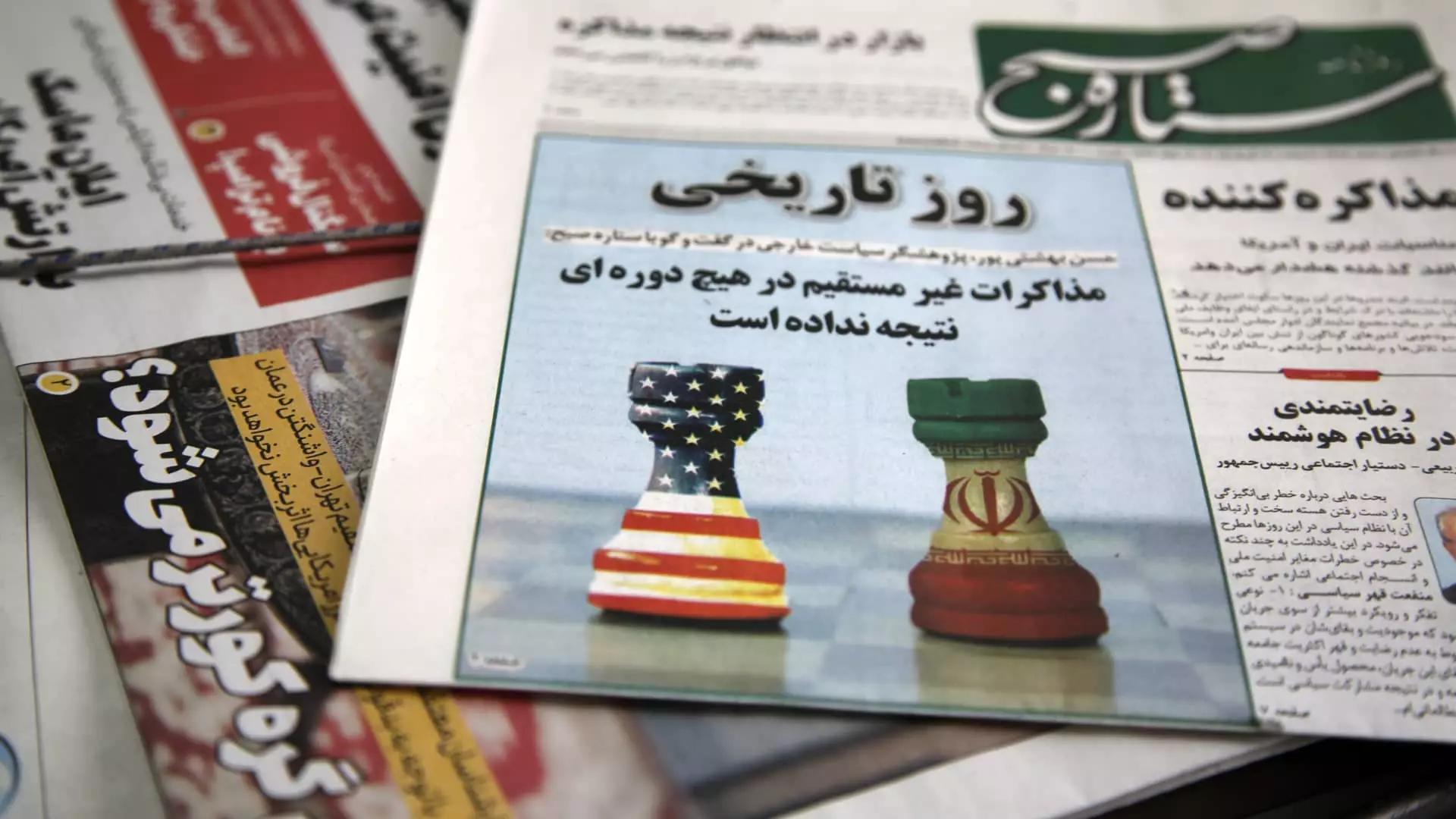The nuclear negotiations between Iran and the United States have entered yet another phase, but the optimism that once marked earlier discussions has been replaced with a palpable skepticism. As both parties prepare for indirect talks in Rome, the atmosphere is marred by the looming threat of military action from the United States, particularly under the unpredictability of President Donald Trump’s administration. The juxtaposition of diplomacy with saber-rattling raises fundamental questions about the efficacy of negotiations under such dire conditions. While the talks might be termed “constructive,” the reality is that a substantive agreement seems as far away as ever, ensnared in a web of mutual suspicion and historical grievances.
U.S. Strategy: Pressure and Promises
Trump’s orientation toward Iran has been characterized by a policy of “maximum pressure” coupled with a high-stakes gamble on diplomacy. After unilaterally withdrawing from the Joint Comprehensive Plan of Action (JCPOA) in 2018, the Trump administration reinstated harsh sanctions in an attempt to cripple Iran’s economy. The U.S. demands Iran halt its production of highly enriched uranium, a requirement that Tehran perceives as not just an infringement on its sovereignty but also as a tactic to undermine its position in the Middle East. Trump’s rhetoric about wanting Iran to “be great and prosperous” is overshadowed by the aggressive posturing that breeds doubt about the U.S.’s intentions. Is it truly concerned about nuclear proliferation, or are there deeper geopolitical ambitions at play?
Tehran’s Stance: Red Lines and Resilience
Tehran’s response has been equally resolute, as the Iranian government has drawn clear red lines, indicating a staunch refusal to either dismantle its enrichment capabilities or limit its uranium stockpile below the levels established by the 2015 agreement. This inflexibility points to a critical psychological position; by asserting these boundaries, Iran aims to project strength in a landscape where its bargaining power has been severely eroded by U.S. sanctions. Supreme Leader Ayatollah Ali Khamenei’s ambivalence towards the talks illustrates a strategic caution—avoiding premature optimism while preparing for potential confrontation. Such statements reflect an understanding that trust is a fragile commodity in international relations, especially in a context where the U.S. has demonstrated a willingness to abandon agreements.
The Role of Mediators and the Global Context
The involvement of Oman as a mediator in these negotiations highlights the delicate nature of regional diplomacy. A nation without significant stakes in the bilateral conflict, Oman provides a neutral ground, but one must wonder if its influence can shift the dynamic in any meaningful way. Furthermore, the participation of Russia, a key player in the 2015 deal, adds another layer of complexity to the talks. Moscow’s willingness to mediate underscores the broader geopolitical contest in which the nuclear talks are situated. While Russia may claim to prioritize stability in the region, its own strategic interests could further complicate the dialogue between Iran and the United States.
Looking Ahead: The Inherent Risks of Failure
As discussions unfold in Rome, the risks of diplomatic failure loom over both parties. The potential for miscalculation—either through military action or a breakdown in negotiations—could reverberate well beyond the borders of Iran and the United States, destabilizing an already fragile Middle Eastern region. If diplomacy cannot bridge the chasm of mistrust, the alternative paths could lead to escalation scenarios that no party desires. The lingering skepticism of both sides could ultimately doom the negotiations to a protracted stalemate, where the consequences would be felt not just across Iran and the U.S., but throughout the world.
The narrative surrounding these negotiations is not merely a tale of nuclear diplomacy; it is an exploration of the fragile fabric of international relations, where power dynamics, historical grievances, and the quest for sovereignty intertwine. In an era where global stability seems increasingly precarious, the choices made in the coming talks could have lasting repercussions that extend well beyond the nuclear question. It is crucial to recognize that the stakes are extraordinarily high, and the path forward is riddled with uncertainty and complexity that cannot be underestimated.


Leave a Reply